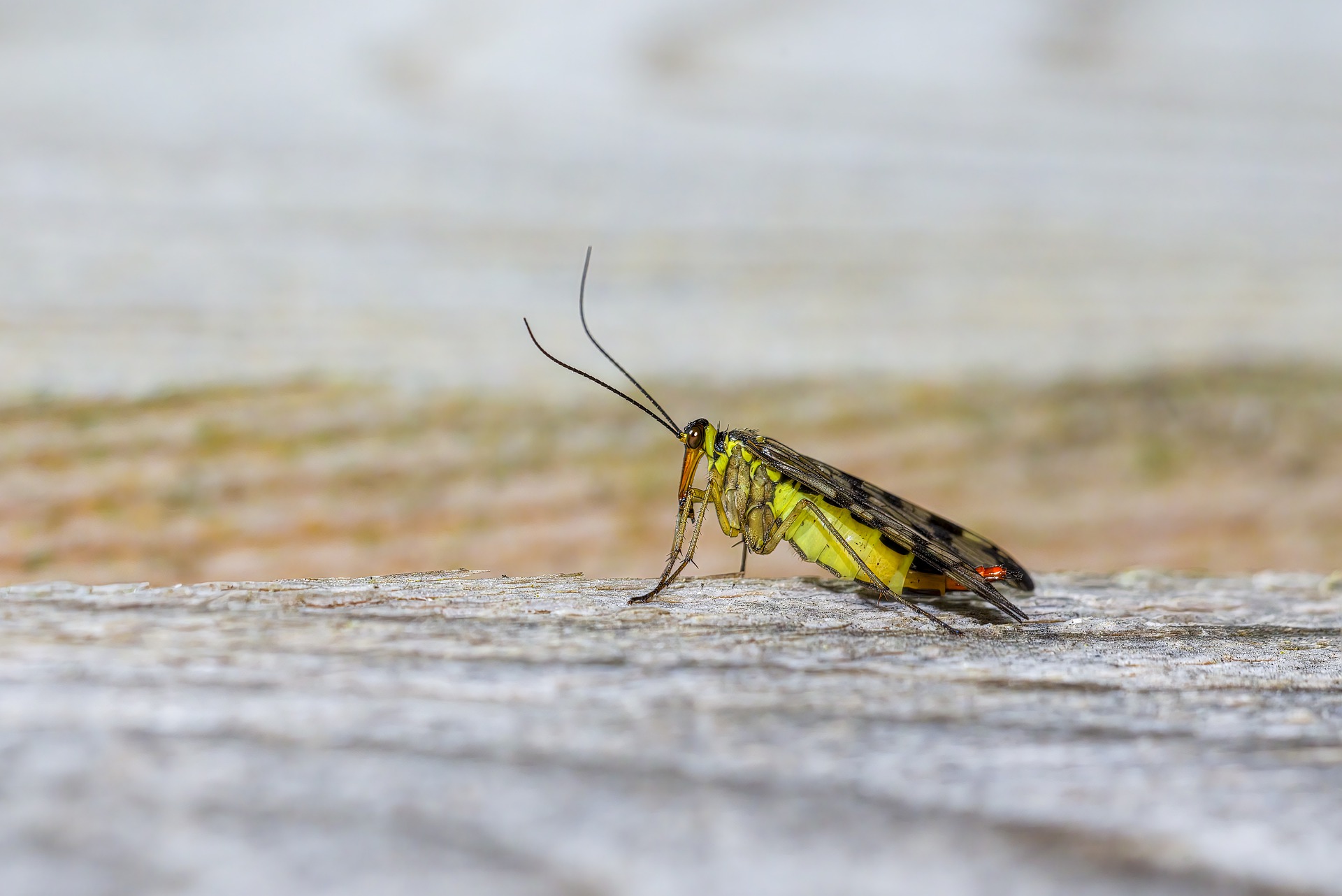The image i provided is a photograph of a Scorpionfly (Panorpa communis). Scorpionflies are insects belonging to the order Mecoptera and the family Panorpidae. Here are some key features and characteristics of Scorpionflies:
- Appearance: Scorpionflies have distinctive features that include a long, slender body, elongated wings, and a long “tail” resembling a scorpion’s sting, although it is harmless and used for mating purposes. In the image, you can see the characteristic tail-like structure curved upward.
- Habitat: Scorpionflies are typically found in wooded areas, grasslands, and other vegetated habitats. They are often associated with damp environments and are commonly found near streams, rivers, or moist soil.
- Range: Scorpionflies have a widespread distribution across various regions of Europe, Asia, and North America. Different species may inhabit specific geographical areas, but they generally prefer similar habitats.
- Lifecycle: Scorpionflies undergo incomplete metamorphosis, with egg, nymph (larva), and adult stages. The larvae feed on organic matter and detritus in the soil or leaf litter. Adults feed on nectar, plant sap, and occasionally small insects. They are also known to scavenge on decaying organic matter.
- Behavior: Scorpionflies are primarily active during the day and are often seen resting on vegetation or flying low to the ground. They are relatively slow fliers compared to some other insects. During mating, males use their elongated “tail” to grasp the female during copulation, giving them their name.
- Conservation: Scorpionflies are not typically considered threatened or endangered, as they are adaptable insects found in a wide range of habitats. However, like many insects, they may face localized threats from habitat loss, pesticide use, and environmental degradation.
Overall, Scorpionflies are fascinating insects known for their unique appearance and behavior, adding to the diversity of ecosystems where they are found.
Visited 920 times, 20 visit(s) today
Views: 1178
